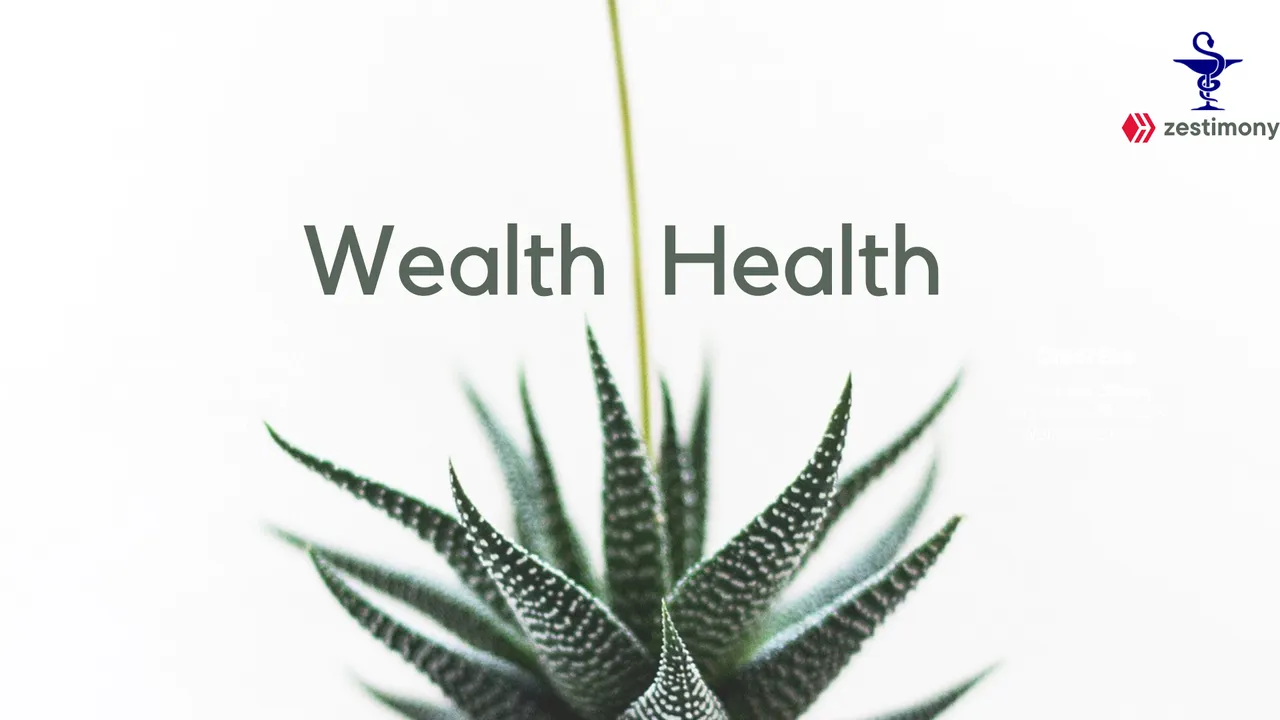
Edited on Canva Image by Kari Shea from Pixabay
Yea, the truth remains that health is wealth, in the sense that a healthy person has higher chances of attaining wealth, that is why best practices to help maintain one's health and wellbeing have always been preached time and again.
The role of exercise, good sleep, adequate diet, and a generally healthy lifestyle cannot be over emphasized.
However, while health could mean wealth,. wealth doesn't necessary mean health.
How is that so? You may wonder.
Wealth ≠ Health
The truth is this, there is no direct correlation between health and wealth. Any relationship is indirect and could be extended to other aspects of life, thus, we can easily say health is life and we can't go wrong.
But while we could directly say, "health is wealth", it would be controversial to conclude that "wealth is health" as well, as it is not a too way relationship.
The fact is this:
Your health is more of your choices and lifestyle than your financial stance
Even most seemingly poor people, enjoy richer health compared to most wealthy individuals today. However, you may still find a statistically significant relationship supporting that rich could be healthier since the data and population is generally skewed.
The fact remains, our health and wellbeing boils down to our choices and our lifestyle!
If you notice most rich kids, they are either underweight or overweight and both situations depict either undernutrition or overnutrition, which all fall within the umbrella of "malnutrition".
Owing to limitless choices afforded the wealthy by virtue of their wealth, they are most likely to make ill-thought-out decisions that could impact their health adversely. But the poor and mid-class are generally extremely frugal than most rich people which makes them stick to the basics.
Nutrition is one major contributor to poor health among the wealthy. Looking at their kids for example, since there is always food (in contrast to the poor), they have the choice to over feed or underfeed.
Poor homes are usually marked by competition for scarce resources, and a child cannot afford to miss a meal as things are generally consistently programmed. No brunch, linner or super. They generally stick to breakfast, launch and dinner.
Thus, for the wealthy, a bit more self-control is required to maintain a healthy life compared to the poor, and self-control has never been a friend of man.
With respect to lifestyle factors, we all know that humans desire a life of ease, and with more wealth comes more ease. As a poor to mid-class person, I usually walk half of the day, and commute with a vehicle for less 9% of the total 24hours for a day, usually leaving me with a step count of 7000 - 13,000 steps as reported by my fitness band.
If I had a car that I can drive straight from my door, I will do way less than half of these steps in a day.
Unlike our choices, sometimes, we are left with few choices to make with respect to our lifestyles, we just floor along with the most rational and convenient lifestyle that meets our needs at a particular point.
In the End
It all boils down to choices and lifestyle. Being poor may leave us with a lifestyle that could make us healthy and sometimes very vulnerable, but we will have few wrong choices to make. In contrast, being wealthy may leave us with a lot of choices that could make reaching a health-promoting decision difficult along with some unintended lifestyle factors. The long and short of the whole thing is that we all need to be intentional about our health, whether rich, mid-class or poor.
